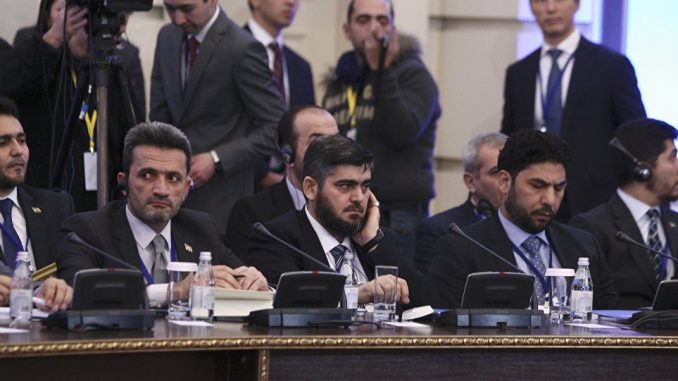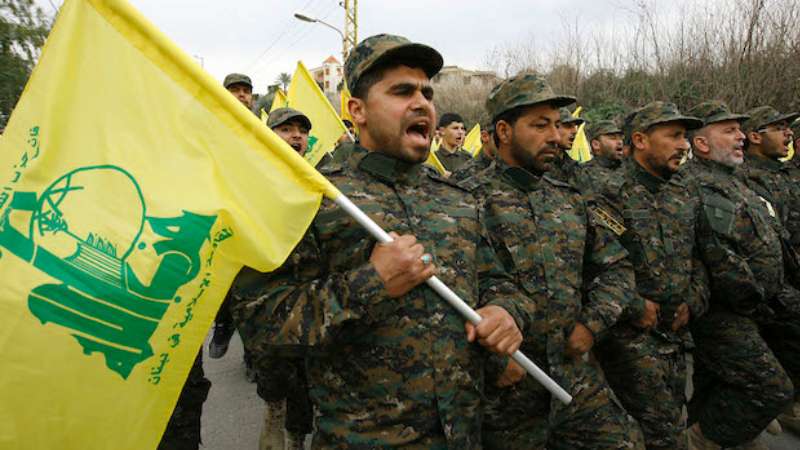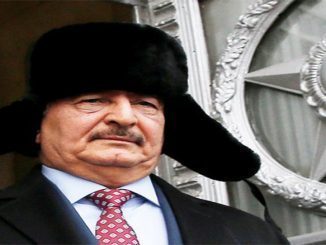
the Syrian opposition declared that they will choose members of their delegation to the peace talks in Geneva next Friday after the UN has been pushing them to form a joint delegation.
The Syria peace talks had been planned to begin in Geneva on Feb. 8 after the Russian-backed talks were made on January 23 in Astana, but Russia’s Foreign Minister Sergei Lavrov said last week that they had been postponed.
The UN envoy for Syria, Staffan de Mistura, said on Tuesday that he had decided to delay the UN-sponsored talks in order to take advantage of the results of Astana talks.
“We want to give a chance to this Astana initiative to actually implement itself,” de Mistura told reporters outside the Security Council. “If the ceasefire becomes as solid as we hope, that will only help the serious talk to achieve the concrete.”
He added invitations for the UN-sponsored talks in Geneva would go out on Feb. 8. If the Syrian opposition cannot agree on its delegates, de Mistura said the UN would choose the opposition’s representatives “in order to make sure that it can be as inclusive as possible.”
The UN wants all the groups that describe itself as opposition t be represented in one delegation, a goal that seems hard to reach as huge differences pose itself between them.
The High Negotiations Committee (HNC) which is considered to be the main opposition group.
HNC members will gather on Friday in Riyadh to form the delegation for participation in the forthcoming settlement talks in Geneva, HNC spokesman Riyad Naasan Agha told Sputnik on Sunday.
“The meeting will take place on Friday. We are planning to discuss the forthcoming talks in Geneva and formation of our delegation to participate in it,” Agha said.
A state of diversity
Other than the HNC there are many other groups that are considered by the UN to be among the opposition including the Kurdish political wing of the YPG forces, the Cairo platform, and the Damascus platform which is backed by Russia.
These groups have doesn’t share the HNC’s view of Syria’s future and have been accused of hindering the political process. Damascus group, for example, is said to unify the opposition figures inside the country. Most of them refused the revolution when it started and formed their delegation after the UN started its political efforts to end the war. The group is supported by Russia, accepts the idea of Assad being in power and back the Russian air campaign against Syrian civilian saying its aim is fighting terrorists.
Last week, members of various factions of those platforms met with Russian Foreign Minister Sergei Lavrov in Moscow and discussed among other issues the possibility of forming a single delegation for Geneva. The HNC General Coordinator Riyad Hijab did not attend the meeting in Moscow.
The HNC said on Wednesday it would be “unacceptable” for the United Nations to choose opposition delegates to the next round of peace talks in Geneva.
“Mr. de Mistura’s talk of his intentions to form the opposition delegation himself is unacceptable,” the Saudi-backed High Negotiations Committee, the main opposition umbrella group, said on Twitter, citing its spokesman Salim al-Muslit.
“Would de Mistura be able to intervene in forming the regime’s delegation?” asked the HNC, which includes political and armed groups and represented the opposition in peace talks last year.
HNC chief coordinator Riad Hijab said on Twitter: “Selecting the Syrian opposition delegation is not de Mistura’s business.”
“The HNC is not against forming the delegation in the right time with the right people and for the right talks. Those who were in the talks — part of Astana and part of Geneva – should be included. … Anyone believing in Geneva Communique that talks about a political transition [of 30 June 2012] is welcome,” HNC spokesman Yahya Aridi also said.
He added that if some members of opposition factions are “echoing what Assad regime wants,” then they are “the backers of Assad regime delegation.”
The Syrian crisis began as a peaceful demonstration against the injustice in Syria. Assad regime used to fire power and violence against the civilians and led to armed resistance. 450.000 Syrians lost their lives in the past five years according to UN estimates, and more than 12 million have lost their homes.



